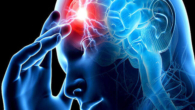
From failure in hormones to cancer: when sweating is a dangerous sign
It is possible to sweat a lot in the case of increased excitement or anxiety: at such moments, the body secretes more hormones of stress, which stimulate the activity of nerves that affect sweat production. In addition, the thermal balance of the body, leading to heavy sweat, is disturbed by intense physical activity, consumption of spicy foods, hot drinks, alcohol. In all these cases, we can affect the factors of excessive sweating (hyperhidrosis) and control them.
sometimes excessive sweating occurs due to heavy obesity and can be restored to normal by weight loss. burdensome.
When sweating is a warning sign of health disorders?A special form of hyperhidrosis occurs in many women during menopause. They experience sudden waves of heat, and at such moments sweat glands open. This outbreak often lasts only a few seconds, but can occur dozens of times a day, causing redness of the skin and sweat. When menopause ends, unpleasant symptoms disappear.
infection. Potting, especially night, is characteristic of many infectious diseases, such as colds and influenza. In chronic infectious diseases such as hepatitis, tuberculosis or malaria, severe night sweating becomes a long -term satellite of the disease.
metabolic disorders. People with hyperthyroidism do not tolerate hot and suffocating weather, often have a relatively high body temperature and therefore sweat profusely.
neurological diseases. Abundant sweat can be a sign that indicates pathological changes in the nervous system, for example, the processes of nerve cell dying. Increased sweating, including at night, can signal Parkinson's disease. pain. Diseases associated with joint and muscle pain, fibromyalgia will signal themselves abundant then. Cold sweat – panic or heart attack? If suddenly the whole body is covered then, which causes a person to tremble, it can be an attack of panic. Sudden severe anxiety can lead to a rapid fall in blood pressure. In addition to cold sweat, a person may have palpitations, dizziness, short loss of consciousness. In addition, cold sweat can be a sign of angina or heart attack. In this case, the chest and compression pain and compression, anxiety, dizziness, shortness of breath are further felt. In some cases, cold sweat indicates alcohol or drug intoxication. Night sweat is a sign of cancer. Night sweat is often manifested by one of the first warning signals of some types of cancer, especially lymphoma, leukemia or bone marrow fibrosis. Combined with weight loss and incomprehensible episodes of fever, excessive sweating is a reason to suspect cancer. Drugs can sweat. drugs that affect the autonomic nervous system, neural brain functions, hormone production or circulatory system, can cause sweating as an undesirable side effect. These include: seeing a doctor. visiting a doctor is advisable if sweating becomes a burden in everyday, private or professional life. A visit to a doctor should not be delayed if sweating is combined with other complaints of pain, thirst, increased anxiety and fears. Frequent sudden episodes of abundant night sweat are a separate reason for a mandatory visit to a doctor.









Leave a Reply